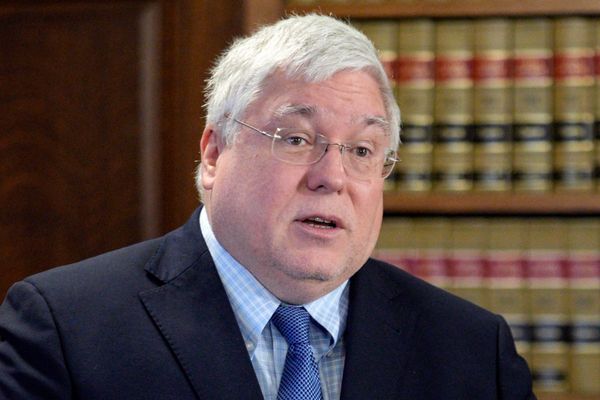
The first question we lawyers asked ourselves when Queen Elizabeth II died was whether our QCs had suddenly become KCs. The answer was a de facto yes; they all jumped on their websites to make the change and the Australian Bar Association rushed out a press release confirming the seamlessness of the transition.
The legal truth is murkier. You see, when Queen Victoria died, her successor Kind Edward VII issued letters patent to all the then Queen’s Counsels, converting them by royal decree to King’s Counsels. That was because, it was understood, the title’s conferral was personal to the monarch — not something that succeeded with the crown.
However, when Elizabeth II’s father, George VI, died, no letters patent emerged and everyone just quietly changed from KC to QC without a fuss. Thus, waffled the Bar, had the convention evolved.
Sound like lawyerish rubbish? Well, it is, but ponder this, citizens of Australia: when you woke up on Friday morning, your allegiance had been changed for you, automatically, from Elizabeth II to King Charles III.
Nonsense? No. Citizenship conveys rights, but their price is allegiance to the body that guarantees those rights. In the modern world of the nation-state, we assume that means our country as an entity in itself. This was reflected in 1994 when the Keating government changed the wording of the Oath of Allegiance, compulsorily taken by new Australian citizens, from one pledged to the Crown to a pledge of loyalty “to Australia and its people”.
That’s all good, but what is “Australia”? Our constitution, the document that created this colonial nation and provides its legal foundation, is explicit about it. Australia, it states, is “one indissoluble federal Commonwealth under the Crown of the United Kingdom of Great Britain and Ireland”. It goes on: the Queen (Victoria) was to declare by proclamation the establishment of “the Commonwealth of Australia”. So she did, and so Australia as we know it came to exist.
The constitutional structure leaves no room for doubt. Federal Parliament is described as comprising the House of Representatives, the Senate and the queen. All members of Parliament are obliged to make an oath of allegiance to the monarch, personally. The executive power of the Commonwealth is also “vested in the queen”.
What all that adds up to is that whether you were born a citizen or naturalised, you owed your allegiance to Elizabeth II. Now you owe it to Charles III, a man who acquired it by birthright when his mum died.
Republicans have been squirming since Her Majesty’s death, caught on the horns of a dilemma they allowed to exist: the desire to push for the end of our subjection to a hereditary monarchy, but the non-desire to upset everyone who loved the queen.
No worries, they had thought, when she finally dies the problem of personal devotion will cease, and public interest in republicanism will be automatically revived. After all, nobody’s particularly enthusiastic about Prince Charles.
Except that Prince Charles is now King Charles, and QCs have morphed into KCs, and the mint is madly dusting off its plans to start making Charles-headed coins. Fifteen days of compulsory mourning have descended, Parliament is postponed, everyone’s wearing black and the monarchy is doing what it does best: smothering the discourse with ceremony and pomp. Charles will look magnificent in scarlet and ermine; like a king.
If you’re really a republican, then you will have felt instinctive discomfort when you realised that your ruler, your overlord, the person to whom you literally owe a duty of fealty, is a man who picked all that up purely by inheritance.
You will have felt something almost none of us have felt before, because Elizabeth II was on the throne before we were born or became citizens: how utterly anachronistic and insultingly demeaning is the concept of hereditary monarchy.
I mean, come on. Unless you literally believe in the divine right of kings, it’s obviously ridiculous. And yet, here we are.
How ridiculous? Consider the crime of treason. In Australia, that offence now lives in the Commonwealth Criminal Code Act. You’ll be guilty of treason if you kill or kidnap the sovereign, the heir apparent of the sovereign or the sovereign’s consort.
No change so far as Charles is concerned. But if you had tried to assassinate Prince William or Camilla last Thursday you would not have committed treason, yet on Friday you would. What was the difference? Their proximity to the man who inherited the throne had moved them overnight one chess piece to the right, taking our legal relationship to them to a different level. Weird, right?
Look, I’m sad the queen died; she did a top job in an impossible role. I’ll watch the funeral too. But her death forces us to confront the stupidity of our sovereignty, passed into the hands of a foreigner by virtue of his status as a child.
Embarrassment, if nothing else, should motivate us to want something a bit more grown-up than this.
Do you find our forced fealty to the Crown patronising? Let us know by writing to letters@crikey.com.au. Please include your full name to be considered for publication. We reserve the right to edit for length and clarity.







